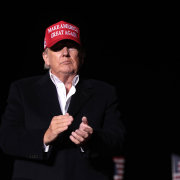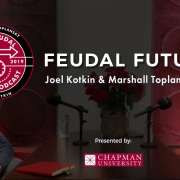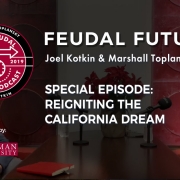Why the Right is Eating the Left’s Lunch
The Western world is experiencing the most dramatic political realignment since the rise of socialism over a century ago. The driving force then was the rise of the working class, created by the Industrial Revolution. Today, it is the shift to an economy dominated by information industries, technology, finance and media. This new economic order, just like that which arose a century ago, is creating a highly disruptive political dynamic and a shift in historic class allegiances.
The tech platforms, the financial giants and retail mega-corporations have formed a new economic oligarchy. In 2023, six of the world’s eight most-valued companies were tech firms. Apple, which sits at the top of the list, became the first $3 trillion company last year. It has a market valuation just below the GDP of India and the UK, and larger than that of Italy, Russia or Canada.
The oligarchs tend to back the so-called progressive agenda on issues like climate change, culture and immigration. Yet, unlike the progressives of old, they they have little interest in achieving greater income equality or spreading prosperity more widely, as they have become the primary beneficiaries of an increasingly fuedalised economy.
The oligarchic agenda also draws support from a portion of the middle and upper-middle classes – those who either service the oligarchs in law or media, or who benefit from expanding government regulations and programmes. Indeed, under US president Joe Biden, most employment growth is now concentrated in government and in largely state-funded healthcare. Biden has also granted government apparatchiks their largest salary raises in half a century.
On the other side of the ledger sit the working class and the private-sector middle class – including shopkeepers, artisans, small property developers and skilled tradespeople. While larger firms continue to attract big capital investments and can cope with big government, smaller firms are imperilled by monopoly power and stringent regulations. Overall, the US middle class has shrunk from 61 per cent of the population to 50 per cent since the 1970s. Prospects for home ownership, good jobs and a secure retirement have all diminished across the West.
Unsurprisingly, the traditional working and middle classes in the West are increasingly alienated from the system. A recent poll found that only 34 per cent of Americans approve of so-called Bidenomics. Another survey found that nearly 70 per cent think the economy is worse now than in 2020. This isn’t just the case in the US. Ordinary workers are also suffering in the UK from stagnant wages, failing productivity and a diminished working-class presence in the woke-dominated national culture. As a consequence of all this, a huge political shift is taking place.
The wealthiest people today are no longer fans of the free market. Instead, they and their businesses are deeply tied to the progressive managerial state. Parties that once identified with working-class interests – like America’s Democrats, Canada’s Liberals, the Australian Labor Party and the UK Labour Party – all increasingly rely on well-educated professionals and the administrative class for support.
Read the rest of this piece at Spiked.
Joel Kotkin is the author of The Coming of Neo-Feudalism: A Warning to the Global Middle Class. He is the Roger Hobbs Presidential Fellow in Urban Futures at Chapman University and Executive Director for Urban Reform Institute. Learn more at joelkotkin.com and follow him on Twitter @joelkotkin.
Photo: by Gage Skidmore, via Flickr under CC 2.0 License.






 Steve Jurvetson, used under CC 2.0 License
Steve Jurvetson, used under CC 2.0 License

